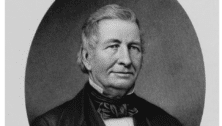What Happens to Facebook (and More) When You Die?

By Kristen Bennett, Esquire
Consider this: Your Facebook account is likely to outlive you. Do you really want your friends and family to have access to it? What about emails, tweets and online posts? Maybe these accounts contain items of sentimental or monetary value to your family and friends. Or maybe they’re just embarrassing information you would rather have deleted than shared.
On the other hand, imagine contacting Flickr to access your deceased spouse’s photos and learning the account was automatically deleted, along with all of the memories stored there. Flickr’s policy, and that of hundreds of digital providers, is to delete a user’s account upon notification of death.
When you pass away, digital assets are not treated the same way as traditional assets like your bank account, personal letters or printed photos. In most cases, your executor (the person designated to wrap up your affairs and distribute your assets to friends and family) does not have access to your digital assets. Even if she can guess your passwords, she is most likely violating the terms of service agreements you consented to when you created the accounts. Federal laws enacted in the 1980s make it a crime to violate such service agreements. Even using someone else’s login information – with their permission – can be a violation. At the same time, tech companies and digital providers risk violating the same laws if they release information to your executor.
It’s a growing issue, and one that not only encompasses high-profile accounts like Facebook, Instagram and Google, but also electronic account statements, emails, electronic health records, online file cabinets, gaming accounts, websites, PayPal, online shops, and electronic material on cloud computing services, as well as on personal electronic devices like your laptop. Some of these assets have monetary value while others are solely sentimental.
More and more states are considering giving users increased control over digital assets and accounts, including Pennsylvania. If passed, Senate Bill 518 would give your executor (or other fiduciary) access to your digital accounts and assets unless you specifically opt out in your will, trust or power of attorney. Pennsylvania’s proposed law would also allow you to prevent access to your digital accounts and even instruct that they be deleted after death. State law varies considerably in this area and many states do not address the issue at all. Even in states that give a fiduciary access, like Delaware and Maryland, some companies’ terms of service agreements prohibit granting access. Until Pennsylvania addresses the issue, you should make your intent clear.
Here’s what you can do: In addition to discussing this in estate planning documents, you can use a service provider’s online tools to designate a person to handle your digital accounts. Otherwise, the fiduciary may have to go to court to get permission to access your digital assets.
For Facebook, go to the Settings menu and then the Security section. That’s where you can designate a “Legacy Contact,” who must be another Facebook user. Your Legacy Contact may only act once Facebook is notified of your death. He/she can maintain your Facebook account, make posts, accept friend requests, and download photos and posts. However, your Legacy Contact cannot delete content from your account or delete your account altogether. Instead, in the Settings section of your Facebook account, you can instruct the service to delete your account after death.
For Google accounts, you can designate multiple people to manage your account, whether you’re alive or dead. Be sure to use Google’s Inactive Account Manager program, which is located in your Google account settings (not the account settings for individual Google services like Gmail or Picasa). The designated person(s) may access your Google accounts and data after your account has been inactive for a certain period of time that you’ve selected.
Making provisions for your digital assets has become an important part of estate planning that should not be overlooked or postponed. You can start making provisions now, and remember to make periodic updates in the rapidly changing landscape of the digital world.
Kristen Bennett is an associate at Gawthrop Greenwood, PC, specializing in estate planning and trust administration in Pennsylvania and Delaware. She also provides counsel on taxation and tax planning for businesses.
Email: kbennett@gawthrop.com
Tel: 302-777-5353
Connect With Your Community
Subscribe to stay informed!
"*" indicates required fields


















![95000-1023_ACJ_BannerAd[1]](https://vista.today/wp-content/uploads/2023/03/95000-1023_ACJ_BannerAd1.jpg)































